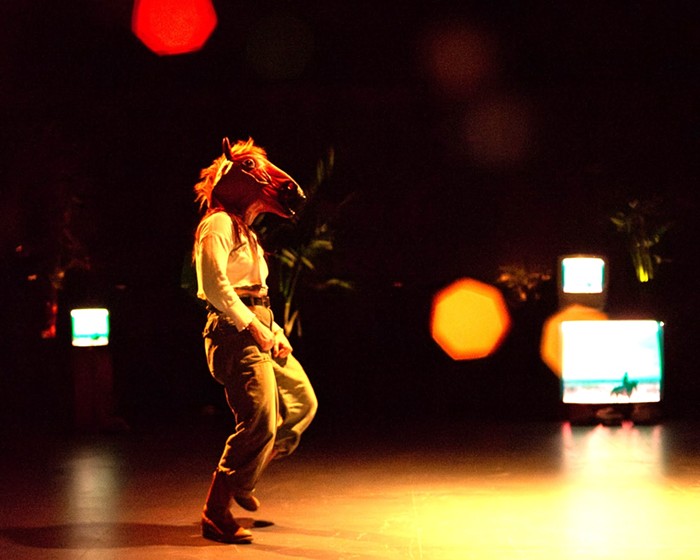The Artists Repertory Theatre's production of Orson's Shadow speculates about what may have happened when Orson Welles directed Laurence Olivier in a production of Eugène Ionesco's Rhinocéros. The show provides plenty of arch dialogue and postmodern cleverness, all undershot with a current of nostalgia for a lost world that most people have probably never missed.
Orson's Shadow is about the interplay of ego, personality, and genius. Olivier and Welles take radically different approaches toward the theater (though both are united in a hatred for Rhinocéros)—approaches that prove to be fundamentally incompatible as the play unfolds.
The show belongs to Todd Van Voris, who channels Orson Welles with rumbling ferocity and a restrained vulnerability. Susan Maginn, too, gives a remarkable turn as Olivier's wife, Vivian Leigh, who is afflicted with a mental illness that places her in sympathetic alignment with Welles' own obsessive tendencies: In the show's most effective scene, the two strike a perfect symmetry of neuroses, and it's a pleasure to watch the two actors work off one another.
ART fills the stage with larger-than-life personalities that seem remote from the possibility of actual human contact. And while there is something to be said for this depiction of the isolating effects of genius, it also leaves much of the play feeling hollow. With the exception of the interplay between Van Voris and Maginn, the distances between the characters feel vast. The bare staging only reinforces these distances, in a way that is neither dynamic nor compelling—Orson's Shadow is set on empty sets, which gives it an unfinished air like watching a dress rehearsal.
There is something very insular about this production: theater people pretending to be theater people. If this served to foster a broader appreciation for the theater world—or if it trafficked in common themes or universal metaphors—I'd be all for it; but aside from some great performances, this production feels stodgy—an homage to a time in which theater really mattered, but which fails to make a compelling case for it's continued relevance.


















